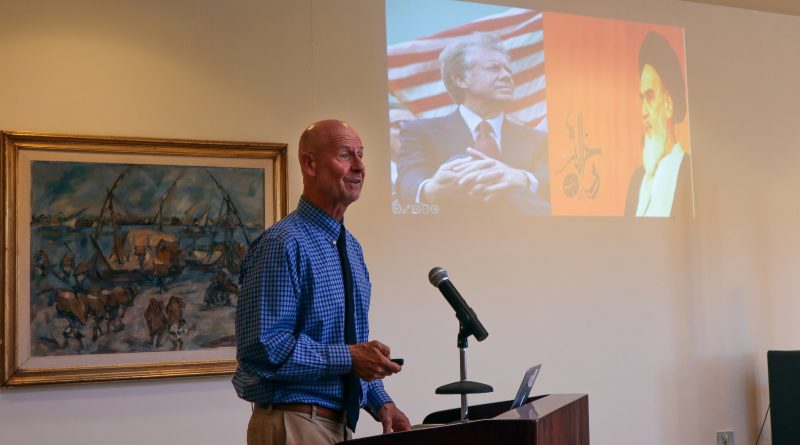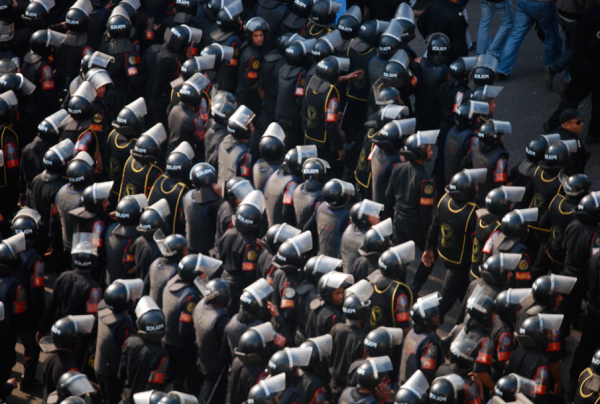Changing Historical Narratives
Written By: Hend Tarek & Farida Yassin
Edited By: Mariam Elsayed
Photo Taken By: Judy Yassin
From a political standpoint, the historical narrative can considerably change the basis of how we evaluate pivotal events of the past.
This is what Michael Reimer, a history professor at AUC, discussed in his recent talk titled “October Surprise? Iran and Jimmy Carter’s Electoral Defeat, 1980.” The talk revolved around how when a US presidential candidate pulls off a “surprise,” a month before elections, they can turn their potential defeat into victory.
Reimer explained that after the U.S. embassy in Iran was taken over in 1979, around 70 Americans were held hostage by Iranian militants for over a year. Former U.S. President Ronald Reagan realized that the fate of these hostages would be detrimental to his position as a presidential candidate.
As a result, he pulled an October surprise and decided to secretly negotiate with the Iranians to keep the hostages until he wins the elections.
For years, people believed that Reagan winning the presidency occurred organically without any sort of interference. However, this assumption turned out to be false, according to Reimer.
“This led to checking the legitimacy of Reagen winning the election and revising assessments of Carter handling the crisis,” Reimer said.
Reimer added that “one task of history is to set records straight and check the legitimacy of Reagan’s winning. It puts Reagan’s presidency in a different light.”
AUC’s Dean of Humanities and Social Sciences John Meloy said the talk was important to highlight the concept of critical historiography and being open to new evidence.
“We have these particular ideas about certain events and narratives and we should be open to new views,” Meloy said.
Sarah Abdelfattah, an AUC student double majoring in Political Science and History, explained how the significance of the talk lies in disclosing events that remained unknown for a long time.
“It changed my perception of the US-Iran relationship and how there is no one pattern or explanation for each event. For instance, I never thought Reagen would offer Iran a deal to win the elections,” Abdelfattah said.




